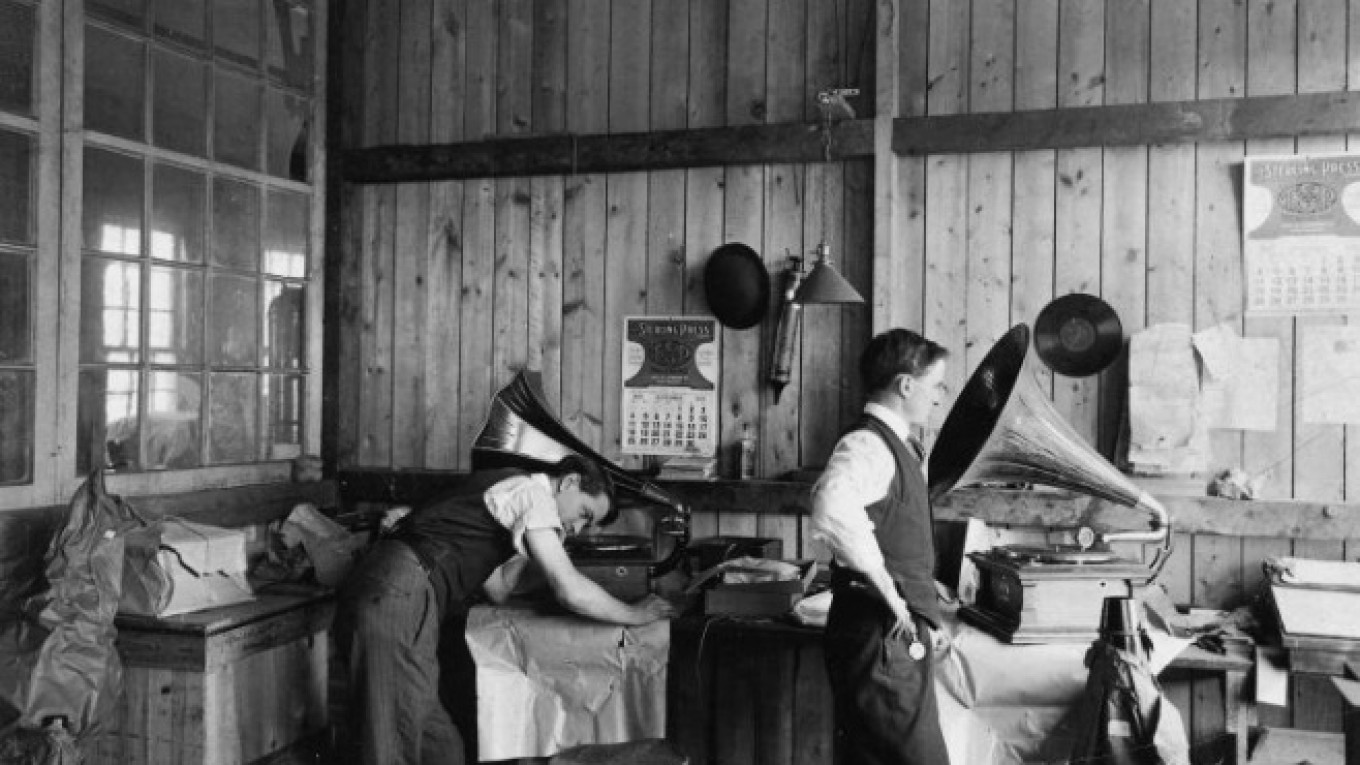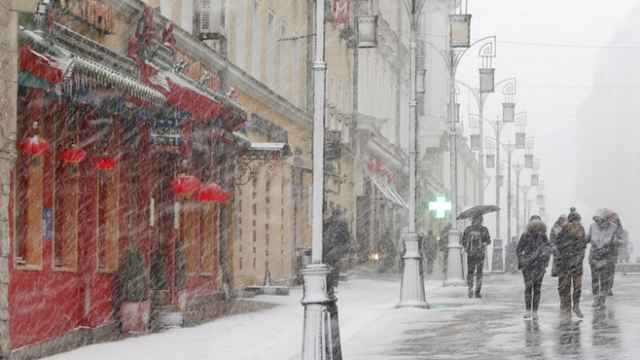After a long winter season — with temperatures that can drop below minus 30 degrees Celsius — spring in Russia is received with open arms.
As elsewhere, the spring season is also a time of romance — hence the Russian joke “U tebya nastupila vesna?” (Has spring arrived for you?”) when someone appears to have fallen in love.
Here's five songs on spring from the Soviet era that say it all.
1. Everybody Sings on a Spring Theme / Vse Poyut na Vesenniye Temy
“Over the sheer Ural ridge,
Where it is still cold,
Early spring songs,
Have arrived before the birds.”
For the full lyrics (in Russian) click here.
This cheerful song about spring, youth and love was written by composer Arkady Ostrovsky, while the lyrics were written by poet Vladimir Kharitonov.
A video of the performance, shot in 1962, shows two actors singing “Everybody Sings on a Spring Theme” at one of Moscow's theaters. The actors are in fact miming, and the real sound is being made by professional singers Viktor Selivanov and Vasily Yeliseyev who are hidden off camera.
2. Spring Tango / Vesenneye Tango
“There comes a time when the birds fly in from the south,
Snow-covered mountains melt and cannot sleep,
There comes a time when people lose their heads,
And this time is called 'spring.'”
For the full lyrics (in Russian) click here.
Valery Milyayev was not just a well-known physicist, he was also a poet who wrote “Spring Tango” in 1973.
His song tells of an eccentric man who wanders the globe while thinking to himself. Having noted how people “lose their heads” when spring approaches, the man advises in the last verse to: “Go to Australia” where it is now autumn.
This humorous song was performed by Tatyana and her husband Sergei Nikitin, who were both famous folk artists. Nikitin also wrote the soundtrack to the film "Moscow Doesn't Believe in Tears," which won the Oscar for best foreign-language film in 1980.
3. When Will Spring Come, I Don't Know / Kogda Vesna Pridyot, Ne Znayu
When will spring come, I don't know,
The rains will pass … the snow will melt
But my own street,
I treasure even in bad weather.
For the full lyrics (in Russian) click here.
This song comes from one of the most popular popular movies of the late 1950s called “Spring on Zarechnaya Street.”
The late 1950s and early 1960s saw a thaw in Soviet politics after dictator Josef Stalin died and Nikita Khrushchev had assumed leadership. This was a time of creative freedom in the arts as the country opened itself up to the Western world.
The film “Spring on Zarechnaya Street” was first shown in November 1956 and the song "When Will Spring Come, I Don't Know" was its leitmotif.
The lyrics were written by Alexei Fatyanov, a former soldier who fought during World War II. The music came from Soviet composer Boris Mokrousov, and the song was performed by Nikolai Rybnikov.
4. Flowers in the Garden Are Lovely in Spring / Khoroshi Vesnoi v Sadu Tsvetochki
Flowers in the garden are pretty in spring,
But the girls in spring are even better,
When you meet a lovely girl in the garden in the evening,
Life becomes different in a flash.
For the full lyrics (in Russian) click here.
Mokrousov also wrote the music for poet Sergei Alymov's poem “Flowers in the Garden Are Lovely in Spring,” a cheerful song about meeting a girl in a garden during the springtime.
This version of the song is performed by singer Eduard Khil, who is perhaps better known as the man behind the “Trololo” video that went viral in 2008. Watch it here.
5. First Spring / Pervaya Vesna
If something suddenly happens to you in winter, in January,
If you see the snow, not white, but green in the courtyard,
You will know: she has arrived, the first spring,
The best spring called love.
For the full lyrics (in Russian) click here.
This upbeat song, which was performed by singer Aida Vedischeva, comes from the film “The White Grand Piano” (1968).
The musical comedy was popular with the audience in the late 60s, and its soundtrack was written by composer Alexander Zatsepin.
A Message from The Moscow Times:
Dear readers,
We are facing unprecedented challenges. Russia's Prosecutor General's Office has designated The Moscow Times as an "undesirable" organization, criminalizing our work and putting our staff at risk of prosecution. This follows our earlier unjust labeling as a "foreign agent."
These actions are direct attempts to silence independent journalism in Russia. The authorities claim our work "discredits the decisions of the Russian leadership." We see things differently: we strive to provide accurate, unbiased reporting on Russia.
We, the journalists of The Moscow Times, refuse to be silenced. But to continue our work, we need your help.
Your support, no matter how small, makes a world of difference. If you can, please support us monthly starting from just $2. It's quick to set up, and every contribution makes a significant impact.
By supporting The Moscow Times, you're defending open, independent journalism in the face of repression. Thank you for standing with us.
Remind me later.






